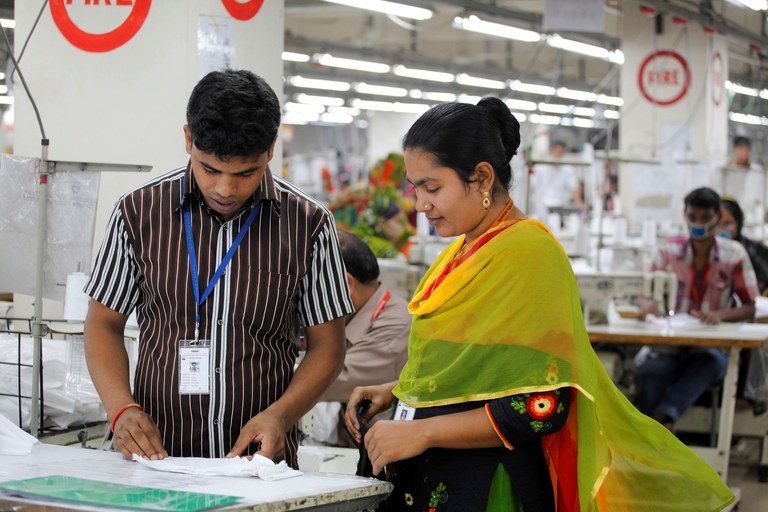Why wage digitization can help drive inclusion in the garment sector
It is becoming increasingly evident that making the transition from cash to digital payment solutions is an important driver for the financial inclusion and security of vulnerable populations. Globally, 1.7 billion adults—most of whom are women—do not have access to formal financial services such as banking, savings, credit, or insurance. Digital financial services and payment solutions are defined as the broad range of financial services accessed and delivered through digital channels, including payments, credit, savings, remittances, and insurance, and includes mobile financial services.
The COVID-19 pandemic crisis has emphasized the need for global supply chains to move away from a predominantly cash-based system. It is clear that now is the time to scale up the use of digital financial services, not only because they are more efficient and effective than cash, but—perhaps even more importantly—because of the role that digitization plays in advancing greater financial inclusion and security, particularly for vulnerable populations.
As the transition from cash to digital financial services accelerates around the world, greater understanding is developing on how to manage this shift, what is needed to deliver impact, and the importance of increased collaboration across private and public sectors.
BSR’s HERproject has partnered with the Bill & Melinda Gates Foundation, Mastercard Center for Inclusive Growth and The Walt Disney Company, to leverage HERfinance Digital Wages program to scale up wage digitization for ready-made garment factories and workers in Bangladesh, Cambodia, India and Vietnam, with a focus on gender equality. Want to learn more about wage digitization? We've compiled BSR's latest resources for you.
Editor's note: This text was originally published on the BSR site and was authored by Christine Svarer, Director, HERproject, BSR and Ella Moffat, HERfinance Manager, BSR.

